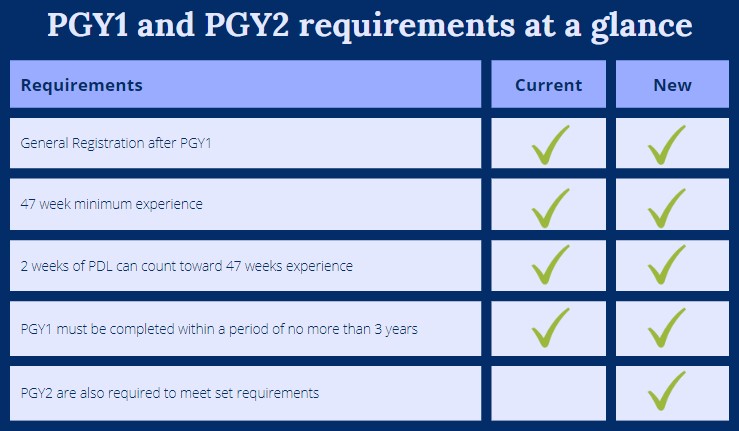Similar to how PMCWA currently accredits units as “core” or “non-core”, the Framework uses terminology which identifies the area of clinical experience that a prevocational doctor is expected to gain during their term. These classifications are listed below, and the definitions are available here.

The new requirements for PGY1s will be formally implemented in 2024 and should result in very little change. The main adjustment will be the inclusion of PGY2 in 2025, which will provide support and breadth of clinical experience to consolidate their skills.
With 2024 intern recruitment occurring mid this year, medical workforce teams will be required to review their term matrices soon to ensure there will be adequate and appropriate rotations for all of their 2024 PGY1s. Matrices will need to meet the AMC program requirements to ensure their 2024 PGY1s are provided with the opportunity to meet general registration requirements. AMC’s new program requirements also stipulate clear guidelines on the time allowed in service terms (e.g. leave relief). We anticipate the new term classification requirements will provide more opportunities for PGY1 rotations rather than result in difficulties in meeting the new requirements.

Similar to what PGY1s currently do, PGY2s will also be required to:
General registration will still be granted at the end of PGY1 (once all mandatory requirements are met), and the definition of an internship (PGY1) will remain the same.
At the conclusion of PGY2 (once all necessary requirements are met) an AMC Certificate of Completion will be issued. It is important to note:
Below is where you will find information on PGY1 and PGY2 requirements within the AMC’s ‘Training and Environment’ document:
Our recent Medical Education Symposium included a presentation which outlined these changes.
For additional information, please view the AMC website.